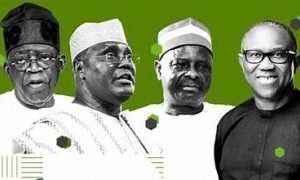
Obi and the LP failed to provide sufficient evidence to support their claim that the election held on February 25 was marked by obvious corruption, the court ruled in its preliminary judgement, which was given by Justice Abba Mohammed.
It was decided that even though the petitioners claimed that the election was tainted by anomalies, they were unable to specify the locations of the alleged violations.
The court remarked that despite Obi and the LP’s claims that 18, 088 polling places throughout the federation were used as voting machines to rig the election, they were unable to identify these locations.
The Independent National Electoral Commission (INEC), it was further ruled, had not proven Obi’s claim that fraudulent results had been reported to President Tinubu and the APC.
It was decided that the Petitioners had also neglected to identify the polling places where there had been excessive voting or the precise numbers of illegitimate votes given to Tinubu by the INEC.
It was emphasized that despite Obi and LP’s claims that they would depend on spreadsheets, forensic reports, and expert analyses from their expert witnesses, they failed to serve the Respondents with the documents as required by law or attach them to the petition as they should have.
The petition contained serious allegations of violence, non-voting, vote suppression, fictitious election results, and corrupt practices, but the petitioners failed to identify the specific polling places where these incidents occurred, according to the court.
It was determined that certain parts of the petition’s claims were “vague, imprecise, nebulous and bereft of particular materials.”
However, the court rejected the Respondents’ argument that Obi was not legitimately nominated by the LP to run for president.
It was mentioned that the Respondents had claimed that Obi joined the LP on May 27, 2022, after leaving the Peoples Democratic Party (PDP) on May 24, 2022.
The Respondents contended that Obi was not a legitimate member of the LP as of May 30, 2022, and so was not eligible to vote in the LP’s presidential primary.
They claimed that it was impossible for his name to be listed in the LP membership register, which was supposed to be submitted to INEC 30 days prior to the primary election.
However, the court found in its decision that it is unjust to treat the question of membership as an internal political party matter.
It was decided that the LP alone has the authority to decide who is a member, and the Respondents lacked the legal standing to inquire about Obi’s LP membership.
In addition, the court determined that the petitioners were not required to support Alhaji Atiku Abubakar, who finished second in the election, or his party, the Peoples Democratic Party, in the lawsuit, despite claims made by Tinubu and the APC to the contrary.
It concluded that neither Atiku nor the PDP are required parties to the petition or statutory respondents.
Justice Haruna Tsammani, the five-member panel’s chairman, is currently reviewing the court’s ruling on the substantive issue after deciding the preliminary issues.


Share your thoughts